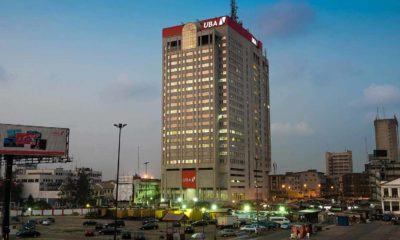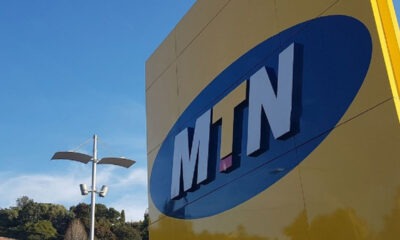Africa’s leading telecommunications company, MTN Nigeria has reported a 7.6% increase in the total number of mobile subscribers in the first half (H1) of the year ended June 30, 2022 to 74.1 million.
The telecoms giant disclosed this in its unaudited financial results released and obtained by Investors King on Friday.
According to the financial statement, MTN Nigeria added 5.7 million subscribers in the first half of the year. Active data users grew by 2.5 million or 13.2% to 36.8 million when compared to the same period in 2021 while active fintech subscribers increased by a whopping 87.3% or 4 million registered (2.4 million active) MoMo wallets to 11.5 million since it launched its Payments Service Bank (PSB) in May 2022.
Revenue generated through service expanded 19.9% to N947.9 billion in the period under review. Earnings before interest, tax, depreciation and amortisation (EBITDA) grew by 22.1% to N509.3 billion.
The company’s EBITDA margin increased by 0.9 percentage points (pp) to 53.6%. Profit before tax increased by 24.9% to N268.6 billion. MTN Nigeria grew profit after tax by 28.1% to N181.6 billion in the first half of 2022.
Earnings per share rose by 28.1% to N8.92 kobo while capital expenditure jumped by 67.1% to N311.6 billion.
Commenting on the company’s performance, Karl Toriola, MTN Nigeria CEO, said “During the first half of 2022, we made good progress in strengthening the resilience of the business in the face of our increasingly challenging operating environment with rising energy, food and general inflation putting pressure on consumer spending. The conflict in Ukraine as well as implementation of a “zero-COVID” policy in China, has also put a strain on global supply chains. To mitigate global supply chain and exchange rate risks, we accelerated capital expenditure for network expansion into H1 2022.
“We deployed capex of N311.6 billion to accelerate the rollout of our 4G network, which now covers 75.3% (compared to 65.1% in H1 2021) of the population and accounts for 77.9% of data traffic (compared to 67.2% in H1 2021).
“In addition, having acquired one lot of 100MHz in the 3.5GHz spectrum band from the Nigerian Communications Commission (NCC), we are on track to launch 5G services across the country in Q3 2022. 5G technologies deliver significantly higher speeds and lower latency, potentially unlocking many new use cases for consumers and enterprises while improving network economics.”
On the impact of NCC on the company’s operations, Toriola said 2.6 million of the 10 million subscribers deactivated on the commission mandate have been reactivated after verification by the National Identity Management Commission (NIMC).
He said “Since the directive from the NCC for all operators to restrict outgoing calls for subscribers whose SIMs are not associated with NINs, approximately 10 million of those affected have submitted their NIN, of which about 2.6 million have been reactivated following verification by National Identity Management Commission (NIMC).
“We continue to engage our affected customers and support NIMC in accelerating NIN enrolment in the country.
“We maintained strong commercial momentum with a net addition of 5.7 million mobile subscribers in H1. This reflects a pleasing acceleration in the run-rate of monthly net additions during Q2, following the initial impact of the restriction of outgoing calls placed on subscribers who had not submitted their National Identity Number (NIN) as at 4 April 2022. Our aggressive drive for gross connections supported this recovery as we ramped up SIM registration and NIN enrolment capacity.”
The CEO further stated that the company increased active data subscribers by 2.5 million in the first half of 2022.
He said “We added 2.5 million active data subscribers in H1 as we continued to drive data conversion from the new and existing subscriber base. In addition, we continue to enhance the quality and coverage of our network to accommodate the increasing demand for data.
“We achieved some important strategic milestones in H1 towards delivering our Ambition 2025 strategy. This includes the final approval for our MoMo Payment Service Bank (PSB) and the commencement of commercial operations on 19 May 2022, leveraging the solid foundation of our existing MoMo business.
“We are pleased with the progress since the launch and excited about the prospects of our fintech business and driving financial inclusion in the country. As at the end of June 2022, we recorded 4.2 million registered MoMo wallets of which 2.4 million are active, generating MoMo transaction volume of approximately 7 million within six weeks of operations.”


 Education4 weeks ago
Education4 weeks ago
 News3 weeks ago
News3 weeks ago
 Business3 weeks ago
Business3 weeks ago
 Technology3 weeks ago
Technology3 weeks ago
 Investment4 weeks ago
Investment4 weeks ago
 Investment3 weeks ago
Investment3 weeks ago
 Telecommunications4 weeks ago
Telecommunications4 weeks ago
 Banking Sector3 weeks ago
Banking Sector3 weeks ago




























